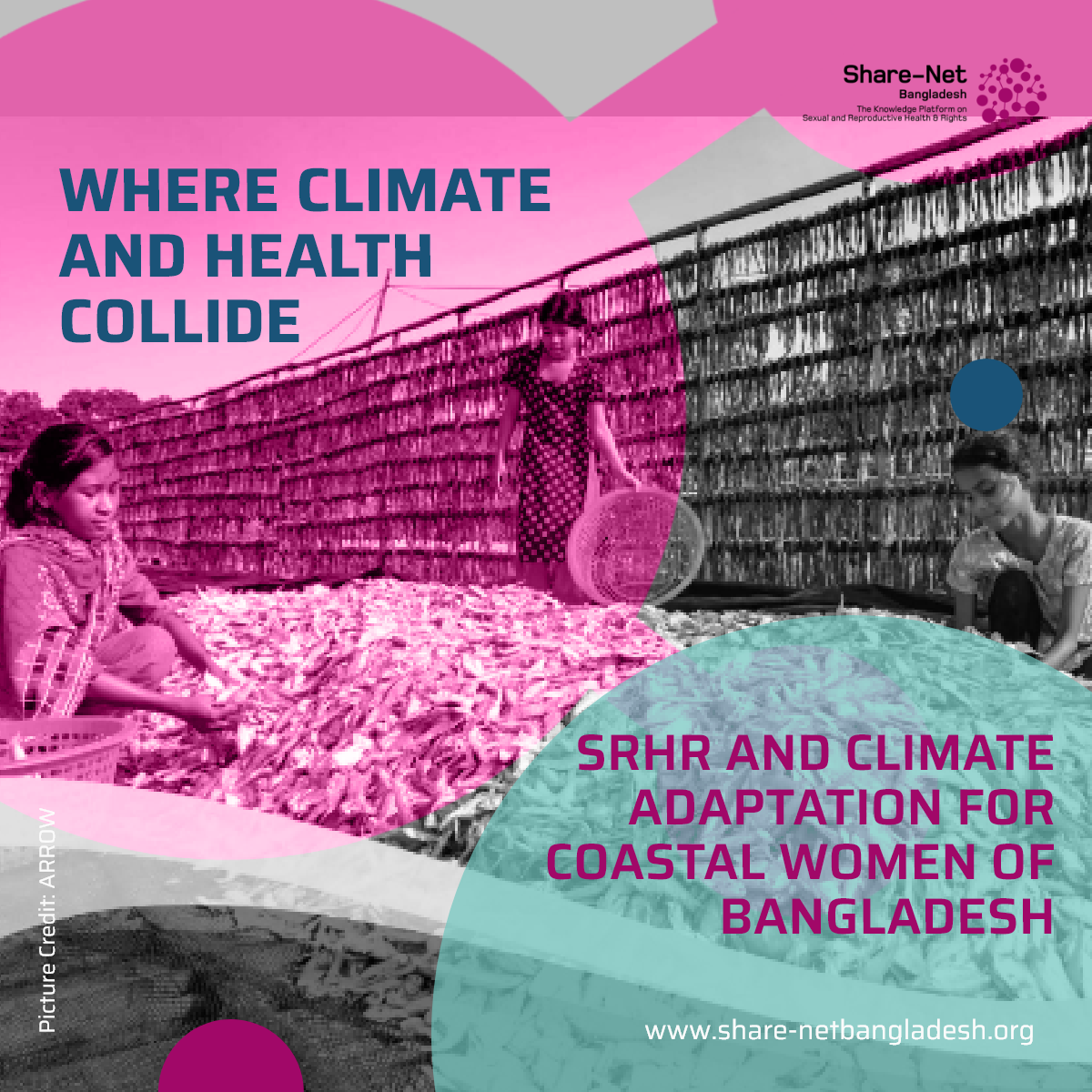Where Climate and Health Collide: SRHR and Climate Adaptation for Coastal Women of Bangladesh
Given the substantial risks from climate-driven issues such as salinity intrusion, changing rainfall patterns, and rising temperatures, the study reveals how these environmental shifts directly affect SRHR, exacerbating risks like child marriage, unplanned pregnancies, and access to essential health services.
Led by the Asian-Pacific Resource and Research Centre for Women (ARROW) and conducted by a regional partnership that includes Badabon Sangho, and other stakeholders from Bangladesh, Nepal, and the Philippines, this research highlights the unique challenges faced by women and girls—particularly Indigenous women, those with disabilities, and residents of vulnerable coastal areas.
This scoping study explores the complex intersections between climate change and Sexual and Reproductive Health and Rights (SRHR) in Khulna Division, a coastal region of Bangladesh highly affected by climate change. The study highlights the severe SRHR-related challenges faced by women and girls in Khulna due to climate-induced factors like salinity intrusion, changing rainfall, and temperature shifts.
These environmental changes lead to declining agricultural productivity, limited access to clean water, and overall livelihood insecurity, which, in turn, worsen the SRHR conditions in these vulnerable communities.
Key Findings and Challenges
- SRHR Vulnerabilities and Climate Change: The study reveals increased risks of child marriage, unplanned pregnancies, and gender-based violence (GBV) as communities face economic hardship and displacement due to environmental factors. Limited access to reproductive healthcare in remote areas compounds these issues, with women and girls often unable to reach necessary services due to distance, costs, or restricted hours.
- Antenatal and Maternal Health: The consumption of saline water, often the only water source, has led to health risks like gestational hypertension and pre-eclampsia among pregnant women. Extreme weather events also disrupt access to maternal and neonatal care, further jeopardising maternal and child health outcomes.
- Gender-Based Violence (GBV): Climate-induced displacement increases vulnerability to GBV, including intimate partner violence (IPV). Disasters amplify economic and social pressures, which can result in higher rates of IPV in affected areas.
- Unsafe Abortions: Limited SRHR services and knowledge gaps around Menstrual Regulation (MR) lead to unsafe abortion practices, especially among young and marginalised women. Climate events exacerbate the situation by cutting off access to post-abortion and psychosocial care.
Recommendations
- Policy and Structural Strengthening: To counter child marriage, implement stronger Child Marriage Prevention Committees and bolster community education on SRHR. Compliance with national frameworks like the National Action Plan to End Child Marriage is crucial.
- Enhanced Healthcare Access: Improve access to SRHR services by setting up satellite clinics in impacted areas, increasing rainwater storage, and using desalination. These facilities should offer flexible service hours to accommodate women traveling from remote regions.
- GBV Support Systems: Develop and strengthen GBV response infrastructure, including safe spaces during disasters, separate facilities for women, and increased awareness of support centers.
- Data Collection and Monitoring: Address the lack of gender-disaggregated data on the SRHR impacts of climate change to support informed policy-making. Ministries like Health and Family Welfare and Disaster Management must collaborate to ensure comprehensive and climate-resilient SRHR interventions.
This study emphasises the urgent need to integrate SRHR into climate adaptation and resilience strategies in Bangladesh’s coastal areas, advocating for a multi-sectoral approach to ensure sustainable health outcomes for the vulnerable communities of Khulna Division.
Download full report: https://arrow.org.my/wp-content/uploads/2024/01/Scoping-Studies-Bangladesh.pdf

